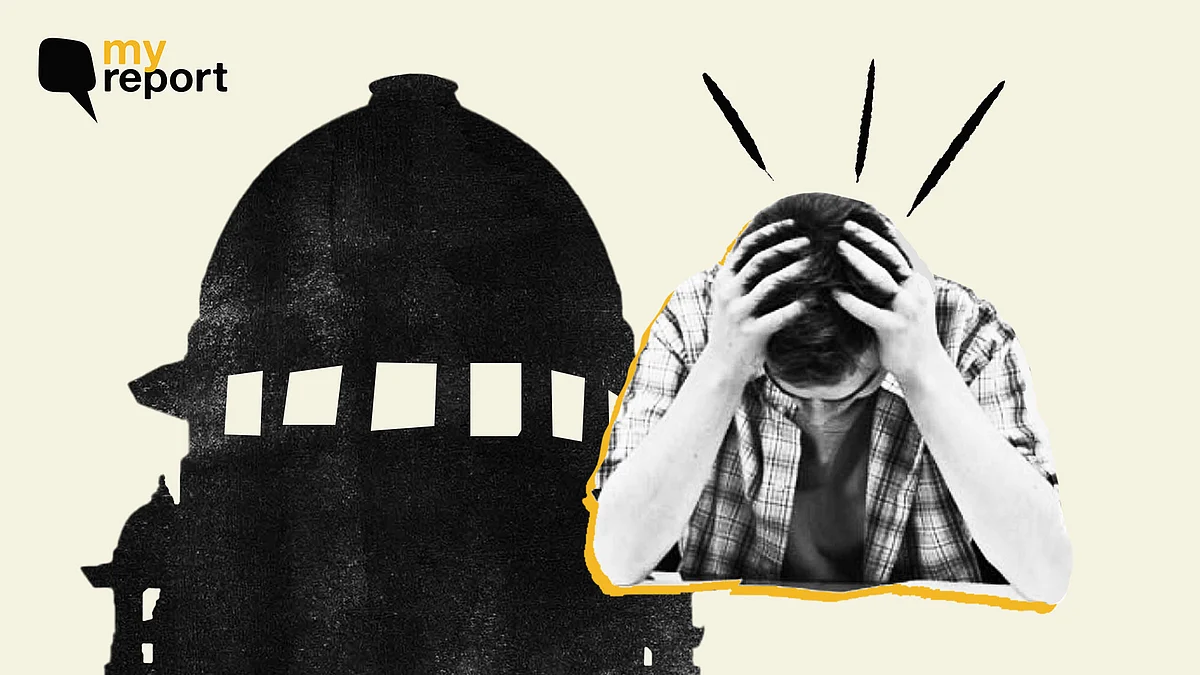
'SC's 3-Year Legal Practice Rule Has Shut Doors For Aspiring Judges Like Me'
"I've spent the past 3 years preparing for the exam, and I'll now have to wait another 3 years to even sit for it."

advertisement
On 20 May, the Supreme Court restored the requirement for any candidate appearing in the Civil Judge (Junior Division) examinations to have at least three years of legal practice at the Bar.
I am a 28-year-old aspiring candidate—and this judgment significantly alters my life.
In the ruling passed by a two-judge Bench of Chief Justice of India BR Gavai and Justice Augustine George Masih, the top court ordered all state governments to amend their respective judicial service rules to ensure that applicants possess at least three years of certified legal practice before becoming eligible for the exam. The court also said the legal practice must be duly certified and endorsed by an advocate who has a minimum of 10 years of standing at the Bar.
I am certain that this ruling will be a setback for thousands of other candidates like me who had spent the past few years preparing exclusively for the exams—without any legal practice.
'A Decade-Long Struggle for Eligibility'
With this recent order, qualifying for the judicial exam could take nearly a decade after completing Class 12. Law can be completed in two ways—a five-year integrated BA LLB course or a three-year undergraduate degree followed by a three-year LLB, totalling six years.
Add three years of mandatory legal practice, the eligibility timeline stretches to 8-9 years—assuming one clears all entrance exams on the first attempt.
'Crushing the Hopes of Female Aspirants'
Despite frequent discussions on the gender gap in judgeship and data highlighting the disproportionate dropout rates of women in higher education, this judgment will only widen that gap further.
We cannot ignore the reality that, in our society, parental and societal pressures to marry and "start a family" weigh far more heavily on women. This new mandate will push many a talented female aspirants away—women who simply cannot afford to wait until they are 28 or 29 to become eligible for the exam.
'Unfair Blow To Current Students'
New law students can, at least, prepare for this mandate from the very start. But for those of us who have already spent several years solely preparing for the judiciary exams, this sudden decision leaves us with no path forward, no time to adapt, and no alternative.
After investing so much time, effort, and hope, it feels cruel to now be told we must spend an additional three years in legal practice just to become eligible. For many of us who are nearing the maximum age limit for judiciary exams, this was our last chance. This sudden diktat has snatched away that final opportunity, leaving us feeling hopeless and defeated.
'Reform The Entire Process'
We have already completed internships and gained practical experience during our law studies.
If the authorities believe we still lack sufficient practical knowledge, they could reform the exam process to better assess real-world skills, rather than barring us from appearing for the exams.
We sincerely and humbly plead with the Supreme Court to listen to our pleas. The abrupt imposition of this requirement has left us adrift, as if our hard-earned future was taken in an instant. Help us find hope, so we can still pursue our dreams of justice and impact.
(All 'My Report' branded stories are submitted by citizen journalists to The Quint. Though The Quint inquires into the claims/allegations from all parties before publishing, the report and the views expressed above are the citizen journalist's own. The Quint neither endorses nor is responsible for the same.)
- Access to all paywalled content on site
- Ad-free experience across The Quint
- Early previews of our Special Projects
Published: undefined